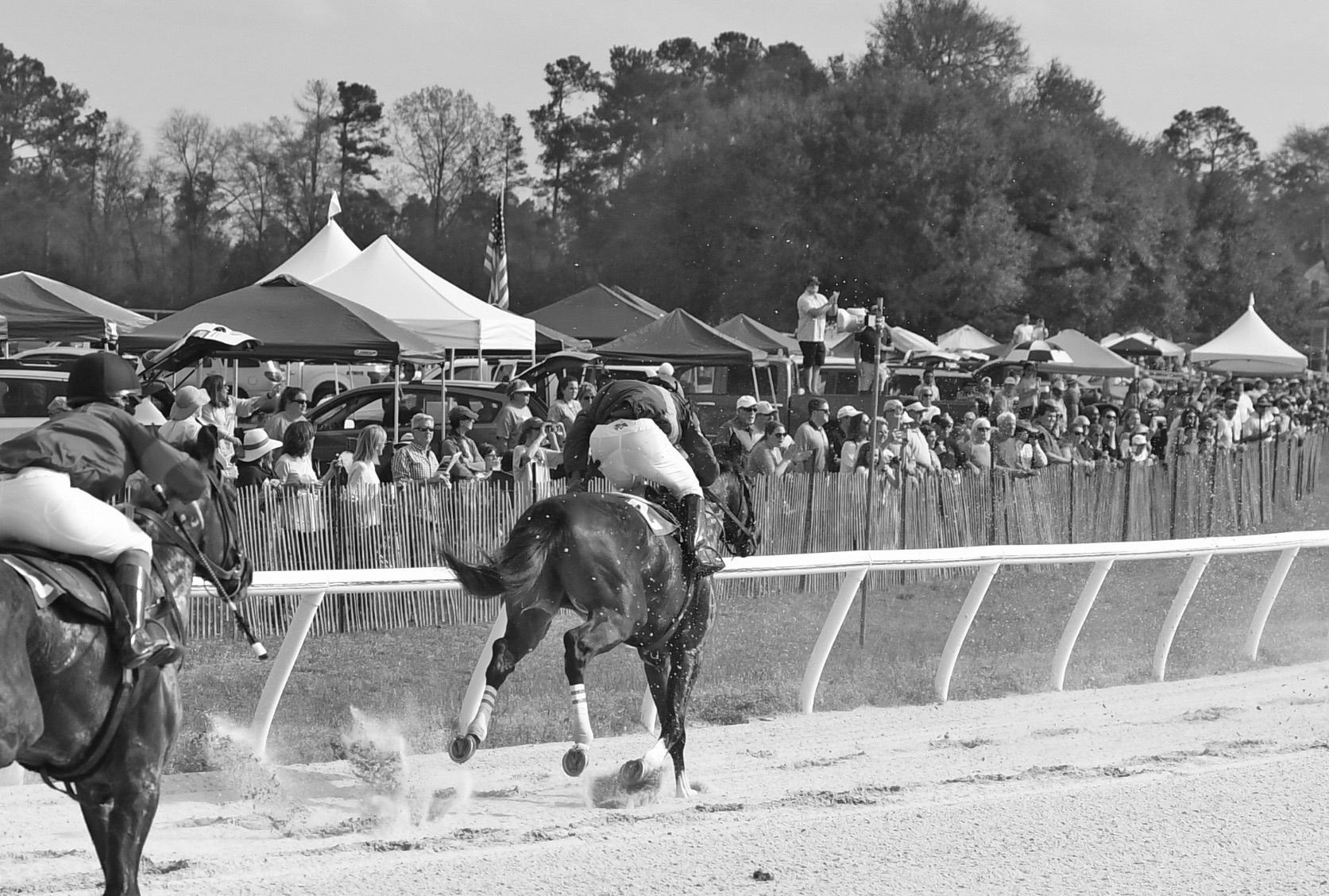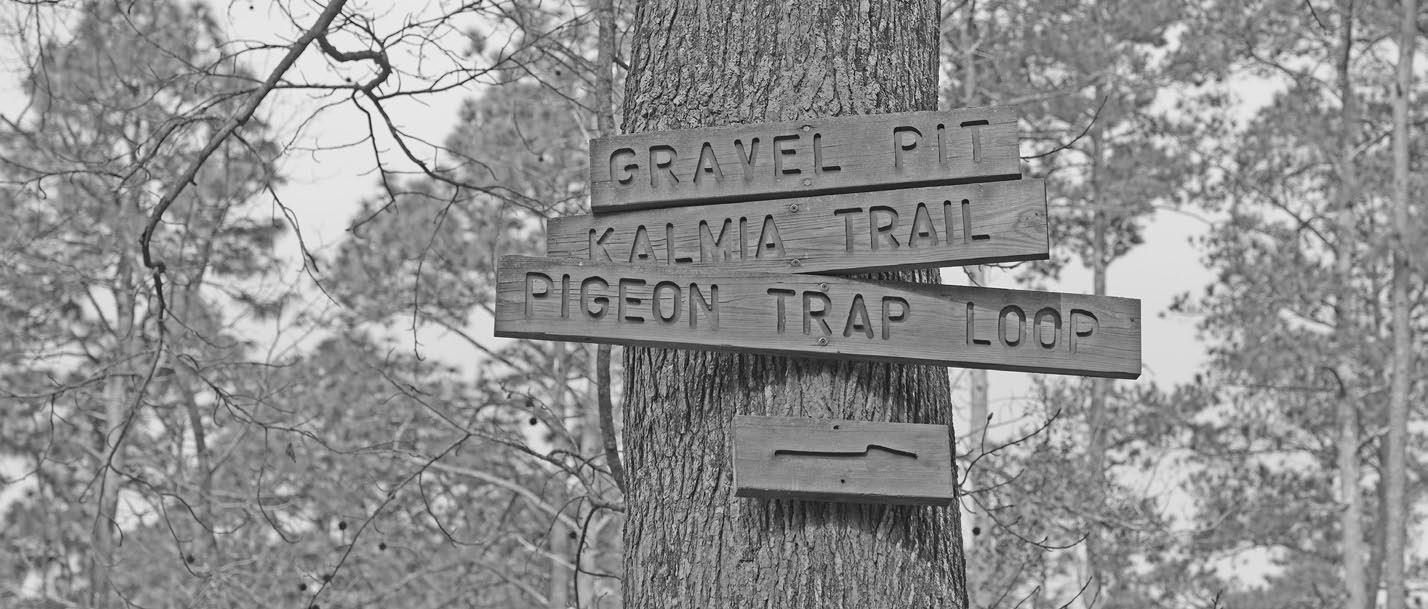
7 minute read
Hold Your Horses
Hold Your Horses
Pandemic Disrupts Our World
Advertisement
By Pam Gleason
It was supposed to be our best spring yet. February through May is always the most active and exciting time to be in Aiken. World class eventing professionals are here to ride, train and compete. There are horse shows, dressage competitions and driving tests. Polo season starts in April, bringing players from up and down the east coast. The Aiken Triple Crown draws spectators from near and far.
Some of this year’s Aiken spring events were expected to be better than ever before. This was particularly true in the eventing world, since several of our riders were preparing for the Olympics, which were supposed to be in Tokyo this summer. Phillip Dutton and Boyd Martin, both of whom train in Aiken during the winter, were pretty much assured an Olympic berth, while Doug Payne, another Aiken winter resident, had a solid chance of earning a Tokyo ticket. So did Nilson Moriera da Silva, a Brazilian national who was striving to represent his country.
Aiken had some high level events on the schedule, perfect to help these riders prepare, as well as to attract other Olympic hopefuls eager to give their horses upper level mileage and prove their mettle to team selectors. These events included the Grand Prix Eventing Showcase at Bruce’s Field, as well as the Designer Builders FEI CCI 1-4 star eventing competition at Stable View in March, which was to be the highest level equestrian contest ever held in Aiken.
At the end of February, Grand Prix eventing went off without a hitch. Then the Olympic shoo-ins and hopefuls embarked on a series of upper level competitions around the region, tailored to prepare horses and riders for the Land Rover Kentucky Three Day CCI*****, America’s only five star competition. Aside from being prestigious in its own right, the Kentucky Three-day, originally scheduled for April 24-29, was to be an important selection trial for the Olympic team.
In addition to the events for upper level riders, Aiken had a full schedule for amateurs and professionals alike. There were recognized and unrecognized horse trials, dressage shows and driving trials. Organizers at Aiken’s three active polo clubs were gearing up for a busy tournament season. The major hunter/jumpers shows were just about to start, and Bruce’s Field at the Aiken Horse Park was slated to run premier and national rated shows from April through June. Volunteers and staff at the Hitchcock Woods Foundation were preparing for the annual Aiken Horse Show in the Woods, a tradition that began in 1916.
Meanwhile, trouble was brewing as the “novel corona virus” (as it was then known) started sickening people in Wuhan, a major city and commercial center in China’s Hubei Province. In intelligence circles, information about this virus started circulating back in November, but official warnings about it did not come out until after Christmas. The first known virus-related death occurred on January 11 in Wuhan, and the first cases outside of China were reported on January 20, in Thailand, Japan and South Korea. The U.S. identified its first case on January 21. The United States declared a public health emergency on January 31. Three weeks later, on February 24, the stock market tumbled as COVID-19 devastated northern Italy and the global community came to the realization that the virus was a serious threat to health and safety everywhere.
Cancellations of sporting events started slowly, then rapidly accelerated. Basketball came first, then Major League baseball and hockey. The horse world was a little slower to respond. Many horse shows and events went on during the last weeks of February and the first weeks of March, with organizers and competitors unsure of the severity of the problem, especially here in the South. With rapidly worsening news, school closings and universities sending their students home for the year, event organizers in Aiken started to worry. On March 11, the WHO declared that COVID-19 was a global pandemic and on Friday, March 13, the virus was declared a national emergency, with much more sweeping measures than the January public health emergency.
March 13 was also the day before the Aiken Trials. That morning, the Aiken Training Track held its traditional Breakfast at the Gallops. A small crowd of people gathered at the clocker’s stand to watch horses gallop and listen to commentary provided by Charlsie Cantey, a pioneering horse racing broadcaster. Later that day, the Augusta National canceled the Masters Golf Tournament. Then, organizers canceled the Windsor Trace Combined Driving Event. The Carolina Cup Steeplechase in Camden was also canceled. So were the FEI World Cup Showjumping finals in Las Vegas. On Saturday March 14, the Aiken Trials went on as usual, with an somewhat subdued attendance.
Over the remainder of the weekend, everything changed. Aiken’s horse people, especially those with friends and relatives in the harderhit Northeast, started rasing the alarm about the Aiken Steeplechase scheduled for the following weekend: they didn’t want crowds of spectators from out of town to flood the city. Although the reality took a while to sink in, by Monday, March 16, the steeplechase was finally canceled. Pacers and Polo, the third leg of the Aiken Triple Crown, scheduled for March 28, followed suit. Then came a flurry of cancellations as new rules and recommendations were issued by the WHO, the CDC and local and national governments, as well as such equestrian bodies as the USEF, the FEI and the USPA.
A few small unrecognized competitions still went on over the weekend of March 23, but they were run under new social distancing guidelines. There was even a hope to run the Stable View CCI****, with no spectators, as a way to help the upper level riders prepare their horses for Kentucky. But those plans were soon discarded, as the pandemic worsened and the Land Rover event was canceled. Shortly afterward, the Olympics themselves were rescheduled for 2021.
Aiken’s horse world went from bustling and active to still and quiet almost overnight. Olympic hopefuls started backing off on the training of their upper level horses. Some, such as Nilson da Silva, who has several top horses in training, says he will use the extra year before the Olympics to work on any issues he may have uncovered in his prospects during the first months of 2020.
Disappointments and lost opportunities are not confined to Olympic riders. For instance, Summer Kneece, a freshman at Mead Hall School, was looking forward to competing with her polo team at the USPA Interscholastic National Finals in Texas, after her Aiken-based team won their regional competition this winter. She had also been selected to fly to Argentina, where she would play in an international tournament for players under the age of 15. Now both of those activities are on hold. In other quarters, many amateur riders are taking a break from riding altogether, some because of restrictions at their stables, and others because they do not want to risk getting hurt and taking up the time and resources of doctors and hospitals dealing with COVID-19.
And yet, life must go on for horse people. Horses still need to eat and to be exercised; stalls need to be cleaned and hooves need to be shod. Our local feed and tack stores have ramped up their deliveries and initiated curbside pick-up for any items horsemen might need. Riders who hope that activities will resume sometime in May are keeping their horses fit. Various event venues and polo clubs are ready to open up whenever it is safe to do so, and they are doing whatever they can to encourage participation. At Stable View, which refunded all the entry fees from the CCI 1-4 star, this means eliminating late fees to sign up for spring events, so that it is easier for people to enter at the last minute. They are hoping to be able to run their upper level event in June, in conjunction with a USEF horse trial they already had on the schedule, but of course no one knows what will happen.
And just to keep everyone’s spirits up a bit, a number of places are running virtual horse shows, in which riders have someone video them, and then submit those videos online to be judged. There are even virtual dressage shows with prize money being offered by Stable View this April. The concept of an online horse show has been floating around for quite some time, but has never really taken hold. Perhaps now its time has come.

The Aiken Trials, March 14. One of the last traditional spring happenings before everything shut down due to COVID-19.










